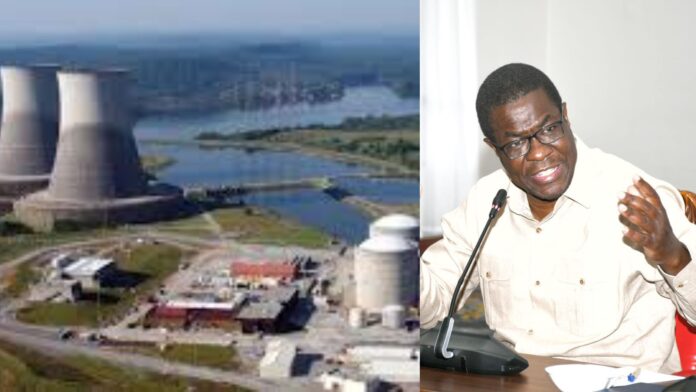SIAYA: Kenya is edging closer to joining the list of African nations with nuclear power, with the government re-afirming that the country’s first nuclear plant will be built in Siaya County as part of a wider strategy to expand access to clean and reliable energy.
Appearing before the Senate Committee on Energy in Kisumu, Energy and Petroleum Cabinet Secretary Opiyo Wandayi said the project, led by the Nuclear Power and Energy Agency (NuPEA), is progressing under strict International Atomic Energy Agency (IAEA) guidelines.
He assured senators that all environmental and safety concerns raised by stakeholders are being addressed before construction begins.
“For the first time, Kenya is staring at the reality of operating a nuclear power plant. All concerns on safety and the environment are being handled in line with IAEA standards,” Wandayi said, adding that the project enjoys strong political support from President William Ruto, opposition leader Raila Odinga, and the Council of Governors.
Alongside the nuclear plan, Wandayi announced that Kenya has secured Sh15 billion from the World Bank to roll out off-grid electrification projects in 14 underserved counties, mainly in the north and arid regions.
The initiative, to be spearheaded by the Rural Electrification and Renewable Energy Corporation (REREC), will deploy solar and hybrid mini-grids to households, schools, and businesses far from the national grid.
“What we want is to ensure that the country develops together. For years, these regions have lagged behind, but the government is determined to bring them to par with the rest of the country,” Wandayi said.
He described the nuclear and off-grid programmes as transformational, saying they would not only unlock economic opportunities in marginalised areas but also establish Kenya as a continental leader in sustainable energy.
Spotlight on KPC Privatisation
The CS also addressed the controversial plan to privatise the Kenya Pipeline Company (KPC), confirming that the proposal has already been presented to a joint committee of the National Assembly on Energy and Privatisation.
“Kenya Pipeline Company is owned by the National Treasury, and it is on record that the government intends to offer its shares in KPC to the public. This process will be guided by the Privatisation Act and carried out in strict compliance with the law,” Wandayi told senators.
KPC, which operates a 1,342-kilometre pipeline network linking Mombasa to Nairobi and inland depots in Eldoret, Kisumu, and Nakuru, is considered a strategic national asset.
Proponents of privatisation argue it will attract fresh capital for expansion and modernisation, while critics warn that selling stakes in a profitable state monopoly could jeopardise national energy security.
Parliament is expected to debate the proposal in the coming weeks, a decision that could set the tone for other pending privatisation efforts under the government’s economic reform programme.
Senate Energy Committee vice chair William Kipkemoi said the House was ready to support reforms through legislation, including reviewing contentious clauses in the Energy Act on wayleaves, which county governments say limit their power to levy fees on land used for energy infrastructure.

